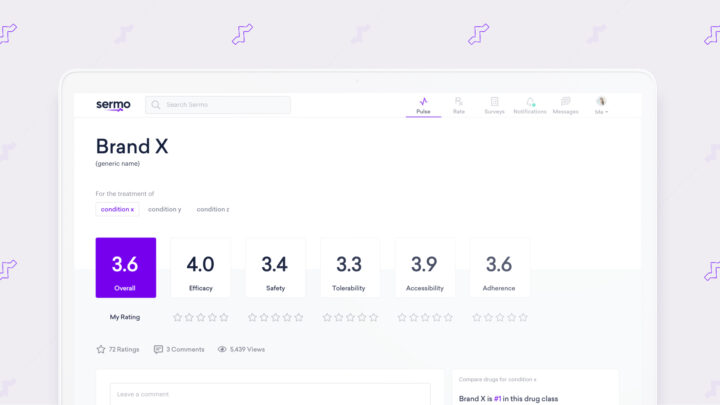
Have you ever wondered how your experiences as a healthcare professional can help shape the future of medicine?
Physician survey trends influence healthcare policies, pharmaceutical research, and medical device innovation by providing valuable insights from doctors like you. In this article, we explore the growing importance of physician surveys and discover the latest medical survey trends so you can maximize your impact and earnings from participating.
Key takeaways
- Physician surveys are increasingly important for advancing healthcare research and policy.
- Popular survey topics in 2025 include telemedicine, mental health, personalized medicine & more.
- Maximize earnings by finding a secure and high-paying survey platform, keeping your profile current, and networking with other HCPs.
The growing importance of physician surveys
Medical surveys have emerged as a pivotal tool in molding healthcare policies, propelling pharmaceutical research and guiding medical treatment innovation. Engaging in paid medical surveys allows healthcare professionals to contribute to current medical market research and opens avenues for additional income.
Market research companies want to hear directly from physicians. And some market research and medical community sites pay HCPs well for sharing their medical opinion.
Medical survey companies are crucial in facilitating these opportunities for healthcare professionals. It positively impacts physicians, the healthcare industry, and patients.

Impact on healthcare policies
Physician surveys have a profound impact on healthcare policies. By providing insights into various specialist fields, physicians can positively influence healthcare decisions and the development of new treatments. By engaging in medical research surveys, you contribute to:
- Evaluating patient satisfaction
- Confronting primary care service limitations
- Guiding healthcare screening policies
- Addressing mental health concerns
- Analyzing the effectiveness of new medications and treatments
- Identifying areas for improvement in healthcare delivery
The medical expertise of doctors like you is essential in providing accurate and relevant information for these surveys, ensuring that the data collected is safe and valuable to the healthcare industry and the public.
Medical research surveys gather insights from other healthcare professionals, providing a comprehensive understanding of the healthcare system. Analyzing physicians’ perspectives empowers healthcare organizations to make informed decisions to enhance efficiency, improve the quality of care, and reduce costs.
Influence on pharmaceutical research
Sharing your expertise aids in safe and effective drug development. Physician surveys provide an educated firsthand look into the effectiveness of medications, treatment protocols, and overall patient experience.
This feedback enables pharmaceutical companies to identify areas for improvement, refine their products and services, and develop strategies to enhance patient outcomes. Participating in surveys also offers other benefits to physicians, such as staying informed about the latest medical developments and having a direct impact on the future of medicine.
Shaping medical device innovation
Sharing your preferences, opinions, and experiences with medical devices informs medical device companies of the needs and challenges healthcare providers face. This knowledge can be used to design innovative solutions that meet those requirements. Additionally, physician surveys can influence the adoption and implementation of new medical devices by providing evidence of their effectiveness and benefits.
Your feedback helps identify potential modifications, usability issues, and safety concerns, resulting in the production of more effective and user-friendly medical devices.

Top physician survey trends in 2025 – 2026
In 2025, physician survey trends encompass popular topics such as:
- Telemedicine
- Mental health
- Methodological innovations like mobile apps and AI
- Preferred platforms for survey participation
These patient treatment trends reflect the evolving landscape of healthcare and the increasing need for valuable insights from medical professionals like you.
Staying ahead in the busy physician landscape means being informed and adapting to these trends, ensuring your contributions are relevant and impactful.
Popular survey topics
Telemedicine, mental health, and personalized medicine are currently popular survey topics. The COVID-19 pandemic accelerated the adoption of telemedicine, and its convenience and efficacy have made it a preferred choice for many patients and healthcare providers. Physician surveys indicate that a majority of doctors are utilizing telemedicine to discuss lab results, treatment options, and other matters with their patients.
Mental health is another prominent topic in physician surveys, given the increasing awareness of the impact of mental health issues on the well-being of doctors. Personalized medicine is gaining traction, focusing on genetic and rare disease studies to improve patient outcomes and provide tailored treatments.
Sermo surveyed over 1,200 physicians to determine the most attractive survey topics in 2024. The top three were physician burnout and well-being (30%), the impact of AI (28%), and new advances in precision medicine (24%).
Methodological innovations
Advancements in tech and AI are changing the way physician surveys are conducted. Methodological innovations, such as mobile apps, AI-driven data analysis, and real-time feedback systems, are being employed in physician surveys to enhance data collection and analysis. Mobile apps offer convenience and efficiency in conducting surveys, while AI-driven data analysis streamlines data processing and provides valuable insights to healthcare providers.
Preferred platforms for survey participation
Here is what to look for when choosing where to take your surveys:
- Provides concise, focused and engaging surveys on a variety of healthcare topics
- Offers a convenient, easy-to-use platform that can be accessed on any desktop or mobile device
- Provides networking opportunities for healthcare professionals
- Data security and privacy is taken seriously
The best medical communities offer user-friendly interfaces, high-paying online surveys, and career growth opportunities for healthcare professionals.

Maximizing earnings from physician surveys
Sermo found the number one reason for not getting started. 58% of physicians are concerned about getting compensated fairly for completing surveys. Keep reading to see how to fix this.
Maximize your earnings from paid medical surveys by identifying high-paying surveys and finding surveys that fit your schedule and specialty. This allows you to leverage your medical expertise into a valuable supplemental income source while contributing to healthcare advancement.
“It has been gratifying to participate in the surveys, which in addition to having an economic gain, provides a gain in knowledge. Thank you”
Identifying high-paying surveys
Finding high-paying surveys enables you to utilize your time and expertise effectively while contributing to current medical market research. It can be challenging, but you can increase your earnings from physician surveys through research and persistence. Start by looking over various platforms and comparing reviews and how much they pay per survey.
Also, consider surveys conducted by pharmaceutical, medical device, and biotech companies, as these typically offer notable compensation. Stay current on industry trends in your specialty. Make sure to keep your survey profile up to date and be proactive in searching for new survey opportunities.
Balancing survey work with clinical practice
Balancing survey work with clinical practice can be challenging, but with efficient time management, setting realistic goals, and prioritizing tasks, you can maximize your earnings from physician surveys without compromising your primary responsibilities. Review your schedule and see how much time you realistically have each week to commit. You might wonder how many surveys you’ll need to complete to see a significant income boost, but this will vary depending on the individual and the availability of surveys and interviews.
Create a spreadsheet to track applications and payments and establish parameters for your locum schedule, including the frequency of work and any necessary travel. Some survey platforms will clearly show your participation and honoraria earned over time. Effective time management and realistic goal setting help balance survey work with clinical practice so you can still enjoy an extra income.
Networking and building a reputation
Networking and building a reputation in the physician survey community can lead to:
- Uncovering profitable physician side hustles in 2024 and 2025
- Attending or speaking at conferences and events
- Establishing a trusted referral or collaboration group
- More survey opportunities
- Higher earnings
- Learning about new career opportunities
- Making an effort to remember and use people’s names when interacting with them.
By cultivating a positive reputation and actively networking, you can secure more paid survey opportunities, increase your earnings, and play a larger role in healthcare advancement.

Challenges and ethical considerations in physician surveys
When participating in physician surveys, healthcare professionals must know the challenges and ethical considerations involved. The sensitive nature of healthcare information and the potential for survey data misuse make data privacy and security paramount. Additionally, potential conflicts of interest can arise when physicians have financial ties to survey sponsors, possibly influencing their responses and survey outcomes.
Data privacy and security
With the potential for misusing sensitive healthcare information, it is crucial to ensure that your data is protected and kept confidential. Implementing robust data privacy and security measures is paramount to maintaining the accuracy and reliability of physician surveys.
Participating as survey respondents should always involve secure and encrypted communication channels, robust authentication measures, and HIPAA regulation compliance. Taking these precautions ensures data protection and upholds the credibility of survey findings.
Conflicts of interest
Conflicts of interest can adversely affect the validity of physician surveys by introducing bias and potentially influencing physician responses. Such conflicts can occur when physicians have financial ties to the survey sponsors, leading to inaccurate data and distorted results.
To avoid conflicts of interest, it is essential to disclose any financial relationships you may have and ensure that survey platforms adhere to ethical practices and transparency. It’s why Sermo is transparent regarding our partnership information and clearly defines how physician survey data will be used. Be aware of potential conflicts of interest when participating in physician surveys and strive to maintain an objective and unbiased perspective.
Future of physician surveys: What to expect
As the healthcare landscape continues to change, so does the future of physician surveys. Technological innovations, new research areas, and evolving compensation models are all factors that will shape the future of physician surveys.
Staying informed and adapting to these changes helps maintain the relevance of your contributions and their lasting impact on healthcare.
“Medical surveys are a nice method to stay up to date in our profession.”

Technological innovations
In the future, technological innovations such as virtual reality, blockchain technology, and advanced data analytics tools will play a significant role in physician surveys. Virtual reality will be used to create immersive environments for physicians to provide feedback on healthcare scenarios, while blockchain technology will enhance data privacy and security. Advanced data analytics tools will streamline the processing and analysis of survey data, providing valuable insights to healthcare providers.
Embracing these technological innovations will improve physician surveys’ efficiency and accuracy and pave the way for new research areas and opportunities.
New research areas
Emerging healthcare trends, such as digital health, precision medicine, and population health management, could influence new research areas in physician surveys. By focusing on these trends, you can contribute to developing innovative healthcare solutions and improving patient outcomes. Exploring new research areas will help drive innovation and enhance the overall quality of healthcare.
As the healthcare landscape evolves, it is essential for physicians to stay informed about the latest trends and developments. Participating in surveys focusing on emerging medical trends helps move healthcare forward while keeping physicians current.

Evolving compensation models
The future of physician surveys may see changes to compensation models. Performance-based incentives, tiered payment structures, and alternative rewards like CME credits or access to exclusive resources could become more prevalent. These evolving compensation models could offer physicians greater flexibility and variety in their survey earnings, making physician surveys an even more attractive opportunity for healthcare professionals.
Staying updated on the latest trends in compensation models and adjusting to these changes allows you to maximize your earnings from physician surveys and persist in contributing to healthcare advancement.
Medical research survey trends summary
In conclusion, physician surveys play a crucial role in shaping healthcare policies, pharmaceutical research, and medical device innovation. Stay informed about the latest physician survey trends, embrace tech changes, and balance survey work with clinical practice to maximize your earnings and impact.
Sermo is a unique online community for physicians, offering opportunities to connect with peers, discuss clinical cases, and participate in surveys. By becoming a Sermo member, you can maximize your earnings from physician surveys and make a meaningful impact on the healthcare industry.
Frequently asked questions
The average response rate for physician surveys is typically in the 40-50% range, with in-person surveys yielding an average 76% response rate, postal surveys 65%, and online surveys 46%-51%.
Join Sermo and complete verification. Once you’re a member, ensure your profile is up to date with your current specialty, location and other information. Then, look for surveys in your available surveys page or via email invites. Topics can be related to medical devices, biotech companies, home exercise, and family activities that offer high compensation.
Digital health, precision medicine, and population health management are emerging healthcare trends that are likely to shape the research focus of physician surveys in the coming years.














